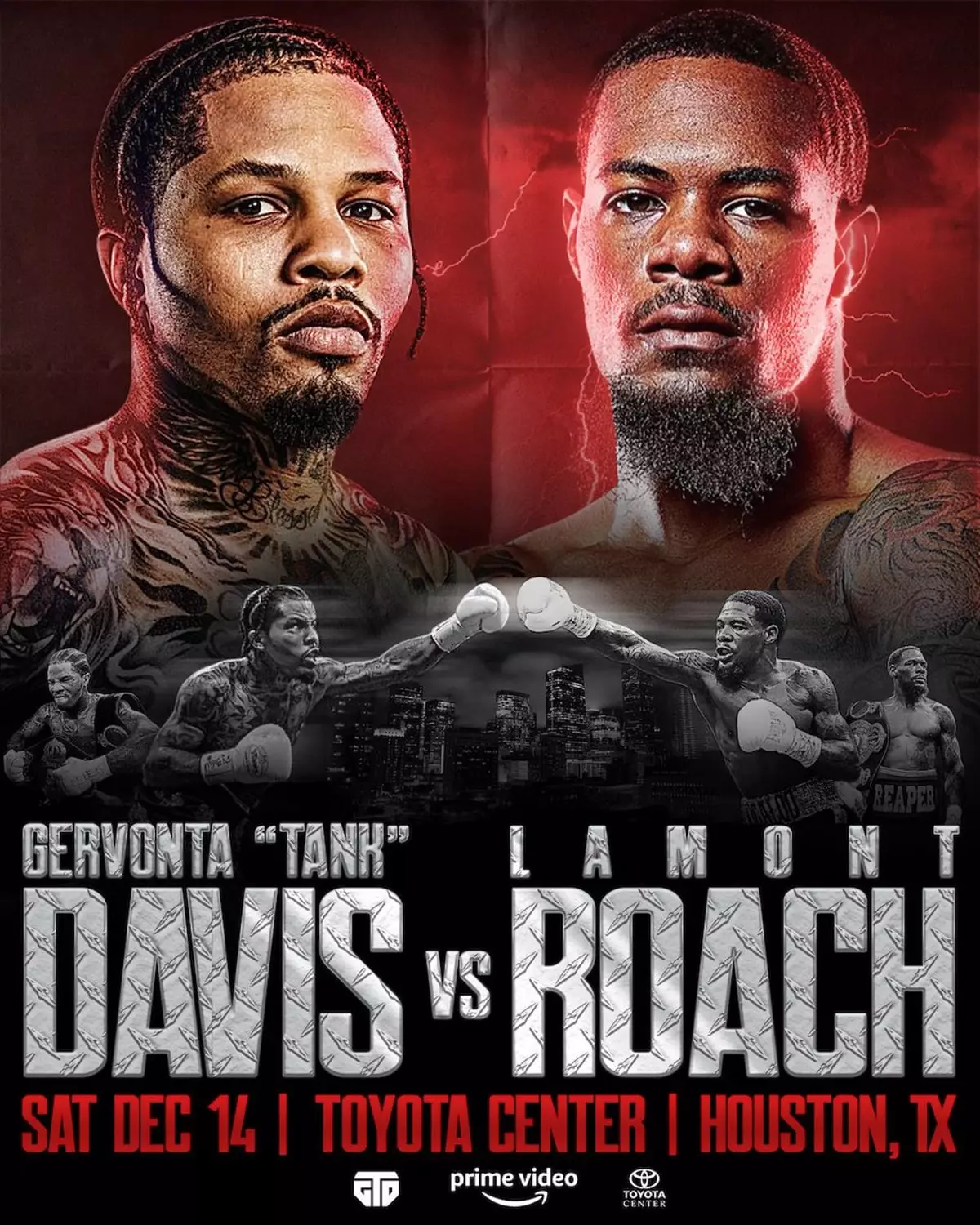The upcoming bout between Gervonta “Tank” Davis and Lamont Roach, scheduled for December 14 at the Toyota Center in Houston, has stirred significant debate in the boxing community. While Coach Stephen Edwards has come to Roach’s defense, arguing that the contest is mischaracterized as a “cherry pick,” many fans and analysts view this matchup as emblematic of a broader issue within the sport—careful matchmaking that avoids the truly competitive fights that would elevate a fighter’s status.
The Fight’s Framing and Perception
Stephen Edwards, the trainer for Lamont Roach, counters the perception that this fight is an easy pick for Davis, who boasts an impressive 30-0 record with 28 KOs. Edwards points out that Roach, who is 25-1-1 with 10 KOs, is not a slouch despite what critics might assume. However, the contrasting opinions highlight a critical examination of Tank Davis’s career choices. Critics argue that Davis’s management has consistently selected opponents that offer little challenge, positioning him as a formidable force while shielding him from genuine threats. The idea of Roach being labeled a “cherry pick” is not just a matter of personal opinion—it encapsulates a pattern that many believe undermines the integrity of boxing as a competitive sport.
The Critics’ Perspective on Fight Selection
The arguments against the matchup hinge on several points: Roach is not ranked in the lightweight division, lacks significant victories over top contenders, and the bout is part of the in-house promotional strategy of Premier Boxing Champions (PBC), which has raised eyebrows. If Davis had consistently faced talented fighters like Teofimo Lopez, Devin Haney, or Shakur Stevenson, as Edwards suggests fans desire, the discontent around facing Roach would likely dissipate. Instead, boxing enthusiasts feel that Davis’s career thus far has been overly padded with fights against less skilled opponents—a trend that wears thin over time.
This leads to a perception that Davis’s achievements are manufactured through carefully curated matchups rather than genuinely earned through competition against worthy adversaries. The question remains: is Davis avoiding tough fights to preserve his undefeated record, or is he strategically navigating the boxing landscape? This uncertainty adds complexity to the narrative surrounding Davis, amplifying the frustration among fans.
The strategy behind Davis’s choice of opponents may stem from a desire to extend his career and minimize the risk of injury, but this raises ethical questions about the sport’s nature. Should a fighter’s journey to championship status be accompanied by risks that come with engaging in challenging bouts? When champions are repeatedly matched against weaker opposition, it fosters an environment where the essence of pride in competition can be questioned. Edwards believes the public’s perception of Davis might be skewed because they expect him to be pitted against elite fighters. The suggestion is that fans, out of respect for the sport’s legacy, equate greatness with the willingness to take risks against worthy opponents.
Boxing has always danced around the fine line between entertainment and competition, often relying on promotional hyperbole to create stars. The trend exemplified by Davis’s frequent mismatches illuminates a systemic issue where promotional entities prioritize marketability over competitive integrity. While the attraction of knockout power and flashy performances can create headlines, the undercurrent of fan dissatisfaction signals a yearning for authenticity in boxing narratives.
Furthermore, when fighters like Tank Davis are frequently criticized as engaging in careful matchmaking, the sport itself faces the risk of losing gravitas—potentially alienating a segment of the audience that prioritizes competitive spirit over spectacle. It becomes essential to assess whether the current promotional strategies are sustainable or whether they will lead to a broader backlash from an increasingly discerning fanbase.
The upcoming fight between Gervonta Davis and Lamont Roach ignites substantial discourse on the integrity of boxing and the choices made by fighters and promoters alike. As Davids’s camp positions the contest as legitimate, the broader boxing community is left to grapple with the implications of a sport that often escapes accountability for mismatches. Whether Davis fights Roach genuinely as a competitive endeavor or simply as another convenient option will play a significant role in defining his legacy. Ultimately, fans and fighters alike deserve a boxing landscape characterized by authenticity and courageous competition, where fighters routinely face the best in their divisions.


Leave a Reply